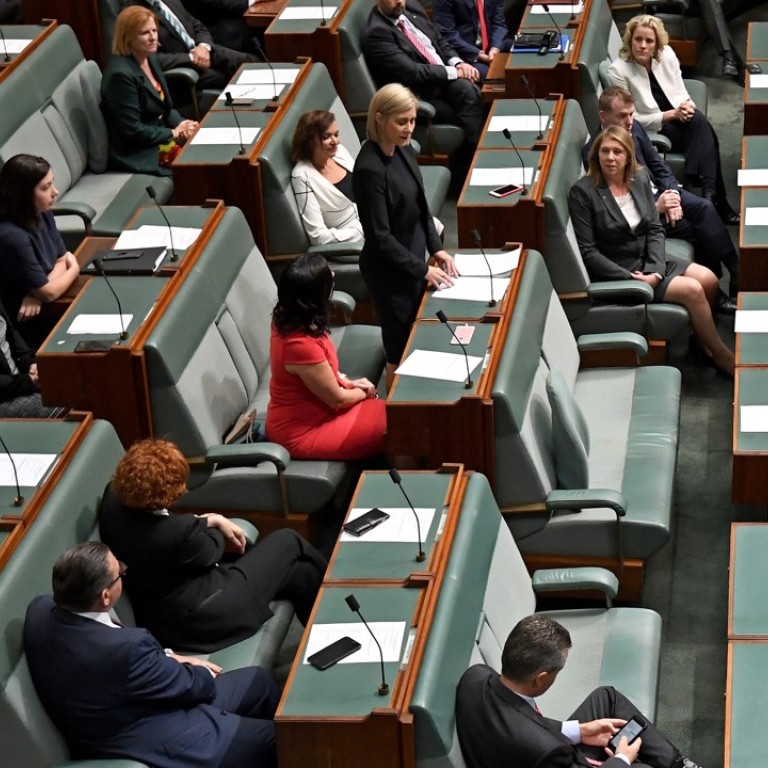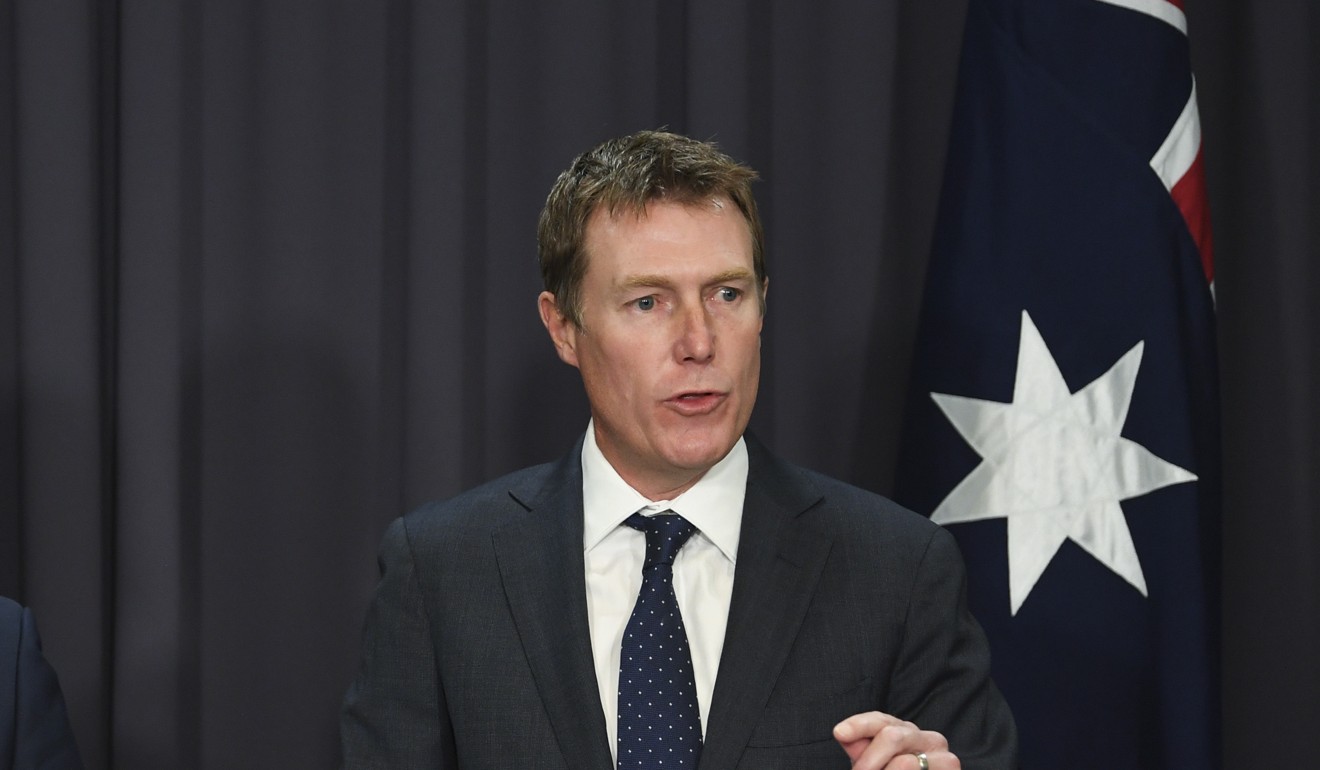
Australia’s foreign meddling laws aimed at China could take effect this month
Media reported last week that two bills were the result of a classified report that found the Chinese Communist Party had tried to influence policy, compromise political parties and gain access to all levels of government
Australia’s attorney general on Friday urged parliament to pass anti-foreign interference laws this month ahead of five by-elections scheduled for late July.
Australia blames the legislation that would ban covert foreign interference in politics and expand espionage offences for the current diplomatic strains in its relationship with China.
Australian media reported last week that two bills were the result of a classified government report commissioned by Prime Minister Malcolm Turnbull in 2016 that found that the Chinese Communist Party had tried to influence Australian policy, compromise political parties and gain access to all levels of government for a decade. The government will not comment on those media reports.
Attorney General Christian Porter cited secret service evidence that the current threat of foreign interference in Australian politics and commerce was constantly evolving and becoming more acute.
He noted that the legislation would for the first time outlaw a foreign government intentionally or recklessly interfering with a democratic or government process, including an election.
“It just makes common sense to have that passed into law as soon as possible and before the next large democratic events in this nation,” Porter told reporters.

Australia will hold five by-elections on July 28, and likely general elections in early 2019.
A parliamentary committee that scrutinised the two bills since December recommended late Thursday that one of the bills be passed with 60 amendments. Porter expected that to happen when parliament next sits from June 18 to 28.
The government had redrafted the second bill to reduce the number of people and organisations that would have to register as having obligations to a “foreign principal” – a foreign government, public enterprise, political organisation, business or individual. The register aims to create more transparency in political lobbying.
Porter said the scope would be narrowed to answer concerns of charities, universities and churches that feared they might have to register due to foreign funding.
It comes as Australia asked China to approve a visit by Foreign Minister Julie Bishop amid heightened diplomatic tension between the two trading partners.
Bishop is set to travel to China this year for the latest in a series of annual meetings held between the foreign ministers of the two countries since 2014.
“We are discussing dates with China for our next foreign security dialogue,” Lauren Gianoli, a spokeswoman for Bishop, told Reuters.
A source familiar with Australia’s diplomatic approach said China would normally respond to the approach “within weeks”. And while analysts said China was unlikely to formally reject the proposal, Beijing could sit on it indefinitely, making a meeting unfeasible.
“It would be huge if Bishop does not travel to China this year, it would mark an escalation in the current diplomatic tensions,” said James Laurenceson, an expert on the two nations’ economic ties, at the University of Technology in Sydney.
China’s response will hint at whether it intends to keep up its frosty approach to Australia, triggered by Canberra’s accusations that Beijing was meddling in its domestic affairs.
Less than a year ago, Australia-Chinese relations were riding high, with two-way trade last year worth a record A$170 billion (US$130 billion).
Prime Minister Malcolm Turnbull’s accusation of Chinese meddling, however, threatens those unchecked economic ties.

